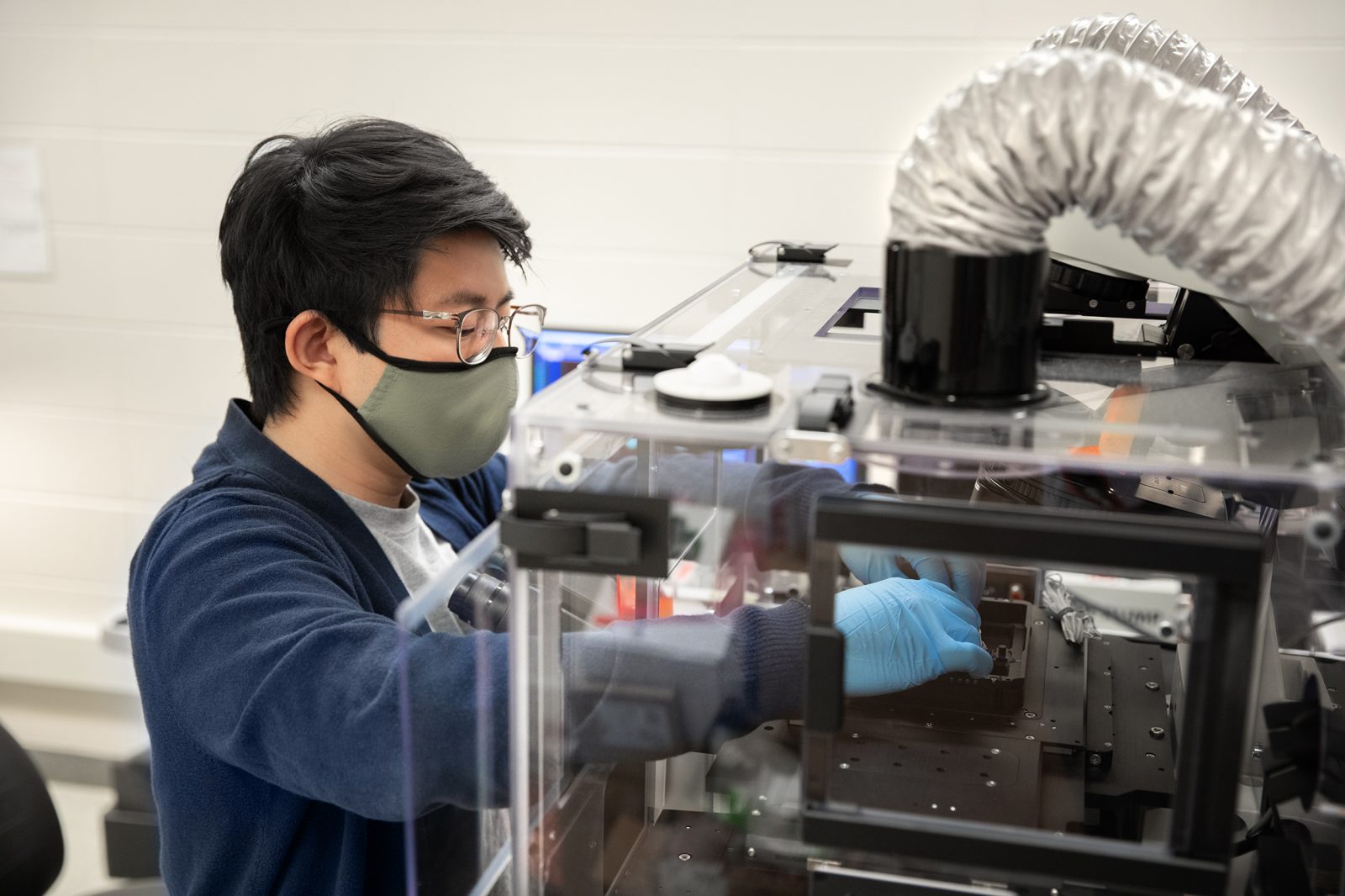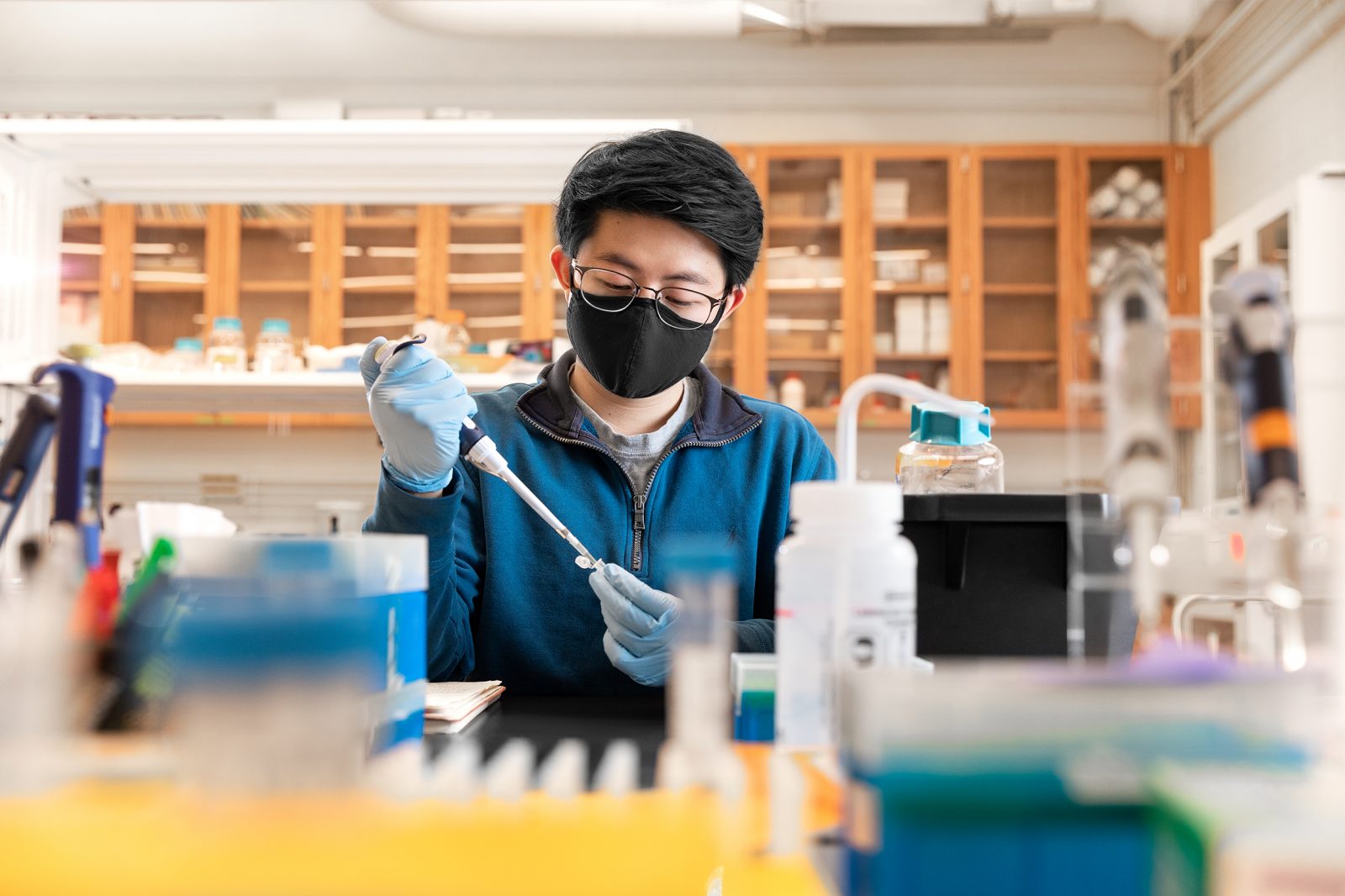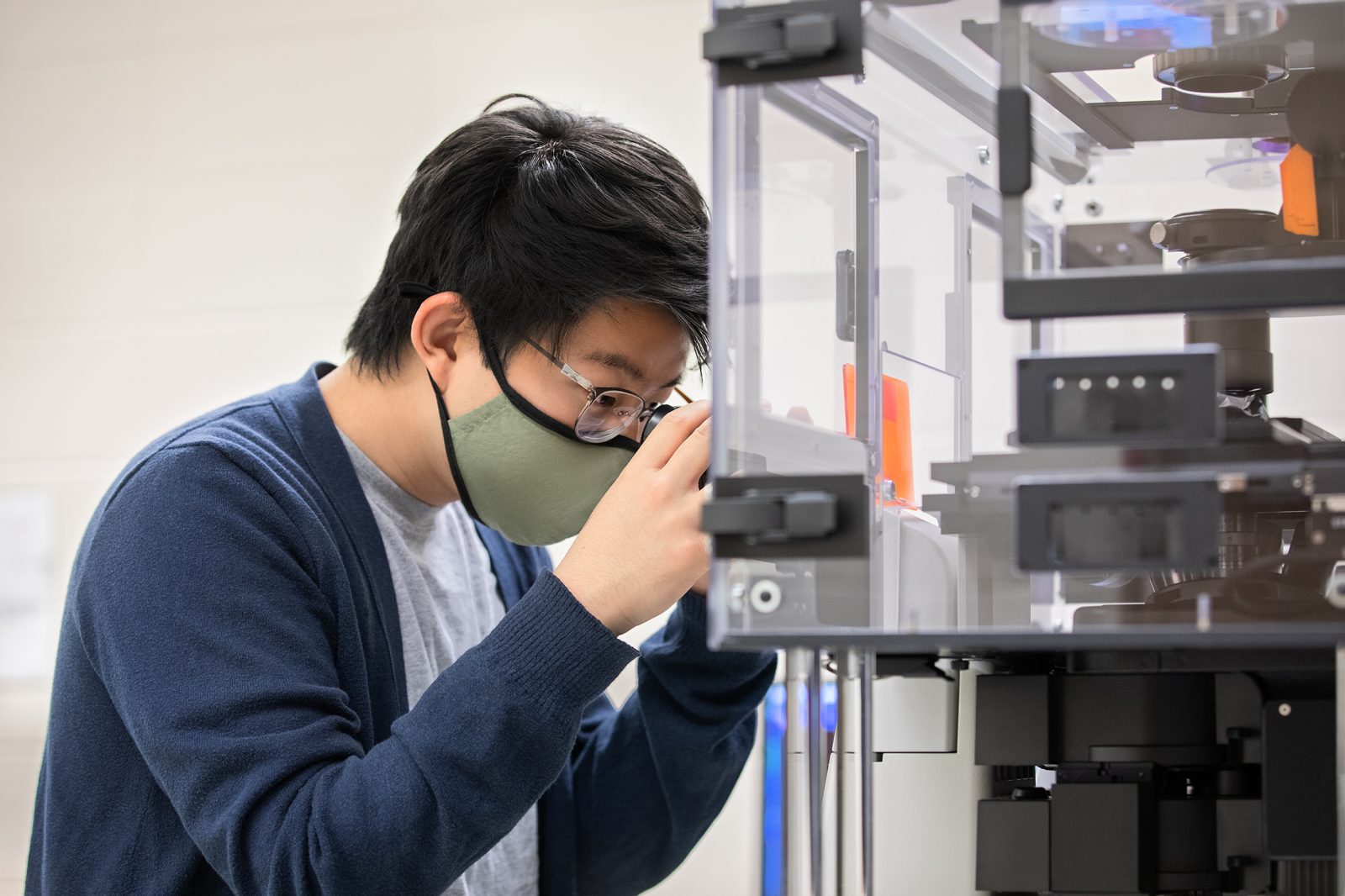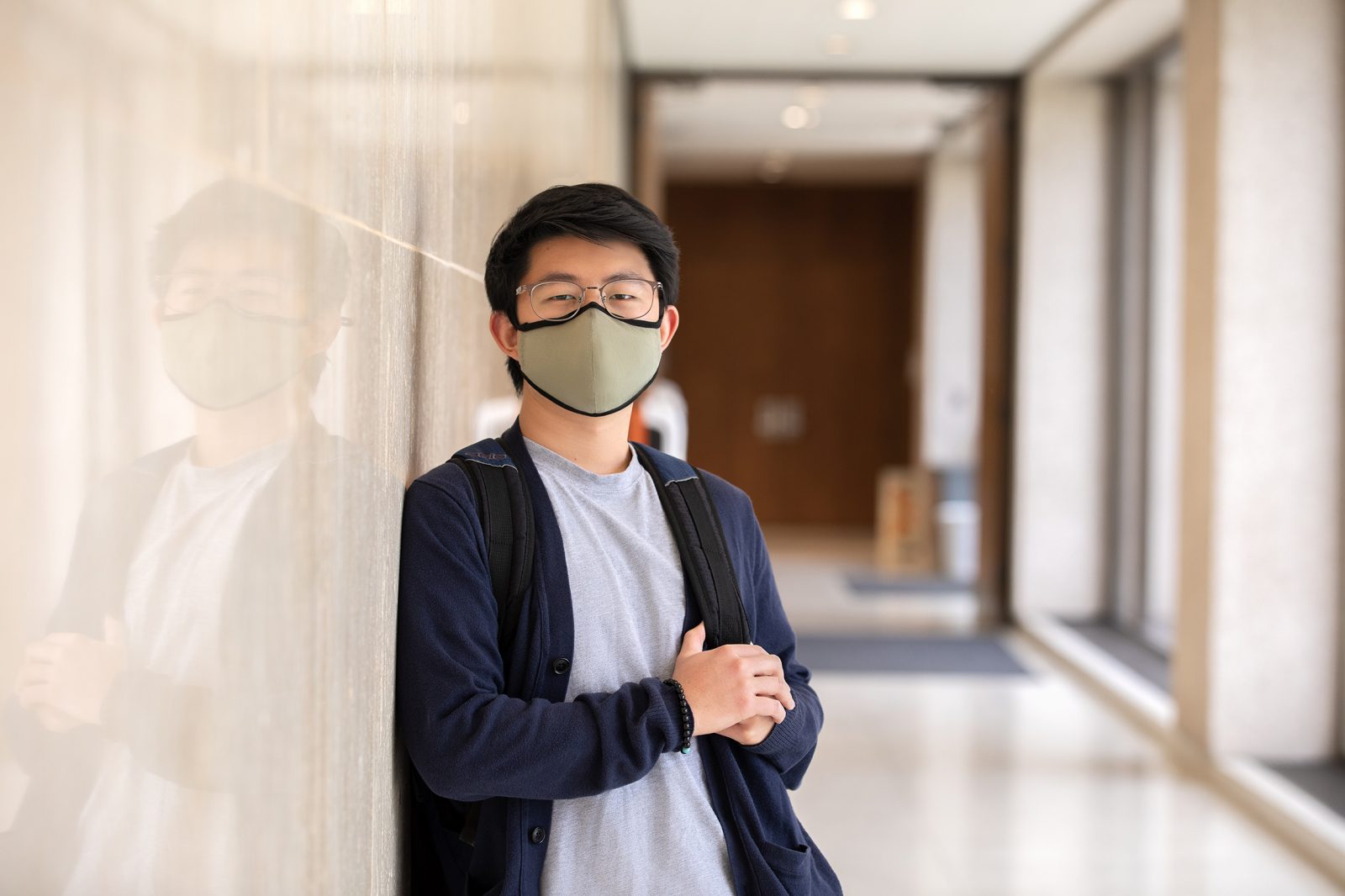A physics and mathematics major works side by side with professors and graduate students on complex research
Hong Beom Lee ’23 loves challenges, and with the physics research that he does, there are plenty of challenges to take on. Lee is a sophomore studying physics and mathematics in the College of Arts and Sciences at Syracuse University. He’s part of a team of 15 graduate and undergraduate students working on research projects with Professor Jennifer Ross.

Lee is studying biophysics with a focus on the tactoid, an elongated particle that appears as a spindle-shaped body under a spinning disk confocal microscope. He is conducting experiments on how tactoids can form microtubules, seeking to understand how the cell organizes its interior without a manager. “Microtubules are like a highway that enables proteins and enzymes to move around the cell. I’m trying to see how the microtubules will react to the changes to their environment in hopes of learning more about the mitotic spindle,” Lee explains. He says his classes in mathematics complement and enhance his coursework in physics.
Lee is a regular in the lab, where he gets to collaborate with others, evaluate slides under microscopes and work with different chemicals to conduct his experiments. Other times, he’s reviewing published papers to gain a better understanding of current theories.
“I love problem solving,” he says. “The more problems you give me, the happier I will be.”
Doing the research

Lee came to Syracuse from his hometown of Mexico City after learning about the University from his brother, who is a medical student at SUNY Upstate Medical University. He was excited about Syracuse University’s diverse and meaningful contributions to science, especially research on gravitational waves, and he felt the small size of the physics department would be an asset and a way to interact more directly with professors.
Lee was impressed with how much the physics department commits to its students’ education to allow them to conduct research as undergraduates. He started performing lab research during his sophomore year.
“With Syracuse being a research university and having a good physics department, I was anticipating that, at some point in my undergraduate career, I would participate in a research group,” he says. “But I didn’t expect to start so early.” He adds that it really shows the faith that Ross has in her undergraduate students’ scientific abilities, as well as the confidence that the students have in themselves. “You can start lab work without extensive knowledge about physics or biology. That will come. The professors are invested in us, and they want us to do the actual science, not just homework. In fact, faculty are actively seeking undergraduates to join their groups.”
In fact, Lee was surprised once again when Ross informed him that if he continued with the strong work he’s doing on his research, it could possibly be published in a paper.
Ross, the physics department chair, was impressed with Lee’s initiative to conduct research. “Hong is amazing. He approached me in his second semester physics class about starting research,” says Ross. “I like it when students start early. It allows me more time to mentor them and help them reach their goals.”
During the height of the COVID-19 pandemic, Lee couldn’t go into the lab and shifted to conducting data analysis and focusing on research where he was not required to experiment. He took the opportunity to learn more about coding in the programming language MATLAB, as well as studying statistics and probabilities, which—now that he’s back in the lab—he’s found helpful when interpreting and analyzing data.
Scholarships and Classes That Make a Difference

Lee received two scholarships to attend Syracuse—the Founders’ Scholarship, an academic scholarship that awards up to $20,000 annually; and the Invest In SUccess Scholarship, which awards high-achieving first-year and transfer students with a renewable merit scholarship.
“It was a relief when I found out that I received the Founders’ Scholarship, because it would soothe the economic burden for my parents,” he says. “But it also pushes me to work extra hard, because I feel some responsibility, since the University gave me this opportunity. I want to show that it was a good decision. I want to show my worth.”
As a student in the Renée Crown University Honors Program, Lee enjoys interacting with other students who want to excel. “It’s a community where I feel identified as someone who enjoying learning.” He also appreciates the support Honors students receive through grants and the small classes where they can debate different topics in depth.
Experience outside the classroom

It’s not just lab work that occupies Lee’s time. He keeps busy enhancing his own knowledge as a physics peer coach, where he is able to help students with their physics questions. “This strengthens my knowledge of what I’ve learned in past semesters,” he says. “By explaining things to other students, it also helps me understand the lessons even better.”
Lee is also secretary of the Society of Physics Students and works for the physics department as a student lab and machine shop assistant. There, he gets to become more familiar with the lab equipment as he helps with set-up, cleans materials and more.
In his spare time, Lee balances his schoolwork with playing acoustic guitar, writing fiction and playing the occasional soccer game with friends.
Whether it’s through physics research or peer coaching, Lee loves giving back and belonging to the Orange community. “As a member of the Syracuse University community, I care about the well-being of our students, faculty and staff, even without knowing them personally. I’m proud to be here, and I genuinely feel like I’m where I’m supposed to be.”
